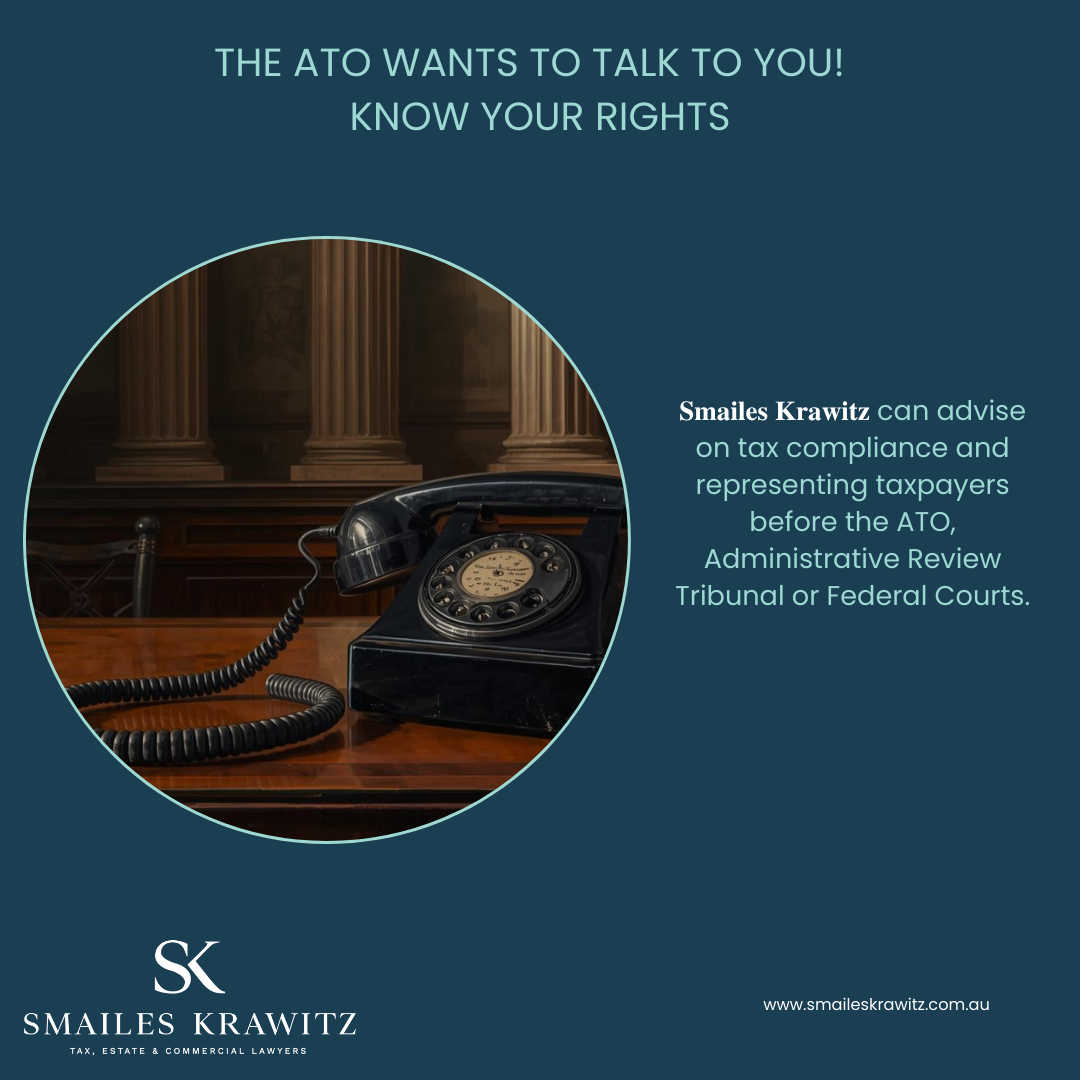THE ATO WANTS TO TALK TO YOU! - KNOW YOUR RIGHTS
The ATO wants to talk to you! - Know your rights
1. A taxpayer does not typically have a right to silence in formal taxpayer interviews
It is a fundamental right that individuals can remain silent as a protection afforded to them under the Australian common law in relation to criminal proceedings.
However, for civil law purposes, the ATO can compel a taxpayer to answer questions in a formal interview. This is typically done as the ATO engages in compliance activity with a view to raising tax assessments against a taxpayer. A person who refuses or fails to answer a question asked or produce a document requested commits an offence.
However, in a recent case (link in comments), the Queensland Supreme Court found that an individual who was formally examined by ATO auditors was directed to answer questions at a formal interview which the Court found was substantially for the purposes of questioning that individual about alleged fraud – a criminal offence.
Accordingly, the Supreme Court concluded that the ATO’s interviewers did not have the power to compel the individual to answer questions about a criminal investigation, undermining the taxpayer’s right to protect against self-incrimination and prejudicing the forensic manner in which she may elect to defend herself in the subsequent criminal trial.
The Supreme Court ordered a stay of prosecution, noting among other reasons, the conduct in the compulsory taxpayer interviews. The judgment is otherwise remarkable for a number of reasons, including the length of the trial and the Court’s findings about the conduct of the investigations leading up to trial.
The takeaway from this matter is that whilst the ATO’s formal powers, such as calling coercive interviews, are incredibly onerous on taxpayers to comply with, there are checks and balances in the criminal justice (and in fact civil law) system to ensure that an individual’s fundamental rights, relating to criminal law and due process, are not undermined.
The distinction between civil allegations of tax evasion and fraud blur with the criminal offence concepts. Any taxpayer subject to ATO compliance activity, especially when coercive powers are used, should afford themselves legal advice to protect their rights.
2. Can an interview be ‘‘informal’’?
Beware also where a taxpayer opts to keep things informal and simply ‘has a chat’ with the ATO. Such conversations can in some cases lead to negative repercussions, whereby the omission of those protections, and the benefit of ‘context’ and a transcript, may ultimately prejudice a taxpayer’s position at audit.
Smailes Krawitz acts for clients in dealing with the ATO from interviews to audits to assessments and litigation.
Contact us for advice specific to your circumstances on (08) 6373 7756
Follow us on LinkedIn for our latest updates HERE.
The material in this article is provided only for general information. It does not constitute legal or other advice.
Limited Liability by a scheme approved under Professional Standards Legislation.
Read the Smailes Krawitz Disclaimer HERE.

